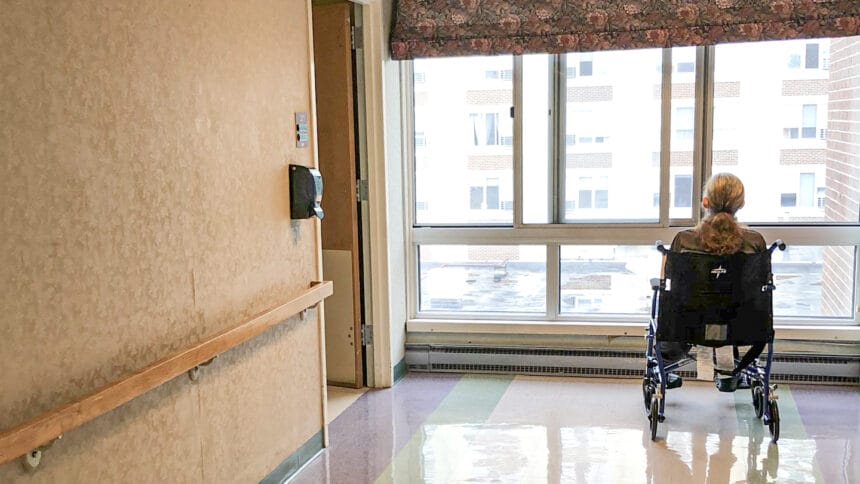
A Rhode Island nursing home is creatively sounding the alarm on Medicaid reimbursement funding gaps that have forced it to operate with six-figure monthly losses.
The financial problems threatening Linn Health and Rehabilitation in East Providence are emblematic of challenges faced across Rhode Island and the country, long-term care leaders in the state say.
Linn Health — founded in 1971 and home to 70 residents cared for by more than 150 staff — is now operating on a month-to-month basis, according to Rick Gamache, CEO of Aldersbridge Communities, the nonprofit organization that runs it. This is largely due to a significant gap between the costs of care and staffing, and Medicaid reimbursements from the state, he said.
Linn Health’s residents have tried to pitch in, even running a bake sale that raised around $2,000. That is not nearly enough to cover operating costs, however.
“During COVID, all costs skyrocketed, especially staffing, for which every penny going to staff is deserved and more, but state Medicaid programs have not kept pace,” Gamache told McKnight’s Long-Term Care News. “Our costs have increased by nearly 35% with Medicaid reimbursement increasing about 15% including the increase we received in October. We still lose over $100 per day per resident, and 80% of our residents are on Medicaid.”

Linn Health is far from alone, according to Jim Nyberg, executive director at LeadingAge Rhode Island.
“The precipitous decline in [nursing homes’] financial situation is unprecedented,” Nyberg told McKnight’s. “The gap between average Medicaid reimbursement and the average cost of care has spiked to over $60 per day in 2022, the last year for which we have cost data, and has presumably grown larger.”
Nyberg also noted that six Rhode Island nursing homes have closed and three more have entered receivership since 2022, which accounts for 12% of the long-term care industry in the state.
Battling funding struggles
Both Nyberg and Gamache are advocating for the state to provide some manner of “bridge funding” to Linn Health and other facilities in the state to alleviate financial struggles in the short term.
“We have been advocating with our governor’s office, the Medicaid program, and other stakeholders on potential remedies to try and provide a funding infusion into the industry,” said Nyberg.
Gamache spoke about how the financial emergency facing his nursing home is just one example of stories that are playing out across the US.
“All nursing homes are dealing with the same circumstances to some degree, and it’s not just here in Rhode Island. This is a nationwide problem that impacts independent not-for-profits, rural nursing homes, and those that are owned by individuals and families the hardest. Hundreds have closed with many more to come,” Gamache said.
“I’ve had candid conversations with several others here and we’re all barely hanging on, operating month-to-month.”
Linn Health’s attempts to address the crisis have included everything from the bake sale, to advocacy with the state, to a media campaign to raise awareness. Still, Gamache says the facility is planning ahead for how to meet the needs of staff and residents if the facility is forced to shut down.
“We have two task forces working seven days a week to identify every way possible to prevent or at least minimize discharges and staff layoffs,” Gamache said. “We are looking at other ways we can utilize our building to care for the residents we love and provide jobs for the staff we painstakingly recruited and retained. It’s going to take a miracle, but sometimes miracles happen. I’m hoping the stars line up for this one correctly.”





